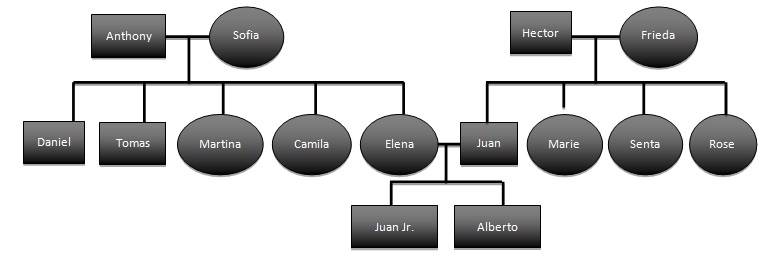The issue of poverty is a major one that affects societies across all nations. The selected theory is functionalism, and it views the social unit as a well-organized system comprised of structural and functional elements (Zastrow et al., 2019). According to the given perspective, poverty is a dysfunctional aspect of interrelated components, which is the result of improper structuring. Poverty severely impacts an individual’s experience in young and middle adulthood because these are the most resource intensive stages of ontogenesis. Both young and middle adulthood are associated with increased demand for resources, where one wishes to invest in his or her education, business, or other beginnings.
It is evident that poverty is mostly the result of individual characteristics because the problem is persistent among all cultures. Therefore, one cannot pinpoint directly towards the cultural elements. However, there are specific within-individual characteristics that determine whether or not a person will suffer from poverty during his or her young and middle adulthood. It is stated that youth delinquency is a strong predictor of an individual having a low degree of socioeconomic status (Rekker et al., 2015). In other words, improper behavior exhibited pre-young adulthood years was tightly correlated with poverty.
The most suitable aspect of the functionalist theory is the fact that it views an entire system as an interconnected functionally dynamic unit. The main reason is that such an approach understands that observing a single element outside its proper position will yield flawed results. The key problematic aspect of the theory is that it is highly conservative and ignorant of its inherent disadvantages. It begins by defining society as a well-organized system, which makes an unsupported assumption that it is already in preferred condition. Therefore, it is reluctant to changes, which might substantially improve the current state.
Genogram: Hernandez Family

The main genogram difference between Juan and Elena lies in their parental aspect. Juan possesses only one parent, where Elena’s both parents are still alive (“Hernandez,” n.d.). In addition, there is another element of similarity of parenting style they received, where they might consider the provided parenting approach appropriate. According to Levinson’s Theory of Parenthood, marital happiness declines if the division of labor within a marriage changes from egalitarian to traditional (Zastrow et al., 2019). In other words, a family structure, which is based on old and conventional views, is prone to fewer satisfaction levels compared to a more egalitarian and equality-based approach.
Studying the phenomenon of parenting, lets one consider the issue of its relationship with the family system. The generally accepted view of the family implies the presence of children in addition to the married couple. The family is a historically specific system of relationships between spouses, as well as parents and children. Given this point of view, parenting can be included as a subsystem in the family system, as a relatively independent education. Thus, parenting is understood as a socio-psychological phenomenon, which is an emotionally and evaluative colored aggregate of knowledge, as well as ideas and beliefs about oneself as a parent, which are realized in all manifestations of the behavioral component of parenting. It includes both spouses who decide to start a new life.
The genogram allows a person to visualize the relationships between members of the Hernandez family. It deliberately shows the general similarity between Juan’s and Elena’s family and how the parenting they received is affecting the individuals in the second row. In addition, one can pinpoint the importance of eliminating these hereditary factors in the third row. It is stated that there both cultural and contextual variations in regards to parenting style in the modern era (Smetana, 2017). There is a form of conventional wisdom in society that it is imperative to be friends with a child. Thus, the concept of parental responsibility is often replaced by the ideas of kindness, care, and affection for the child. These are undoubtedly important components of parenting, but they are not sufficient.
First of all, a responsible parent is a mature person who is able to take responsibility for his or her actions and his or her life. After all, if this does not apply to oneself, it is impossible to talk about responsibility for a small child. Being a mature person, a person is able to provide himself with work, housing, and create favorable conditions for the development of the child. Thus, responsible parenting is, first of all, a balance of different aspects of upbringing, where the communicative side is regular communication with the child.
In a modern world full of dangers and temptations, Hernandez parents should always be aware of what is happening in the child’s life. There should be a knowledge of his or her interests and preferences, if possible, to share them and have an influence on him. In the case of the emotional aspect, the parent should be willing to listen to the child and talk to him about important topics, trying to avoid judgmental and judgmental values. In addition, it is essential to act as a helper and advisor, evoke a response in the child, give him or her the opportunity to discuss problems, and share his or her experiences.
References
Hernandez. (n.d.). Web.
Rekker, R., Pardini, D., Keijsers, L., Branje, S., Loeber, R., & Meeus, W. (2015). Moving in and out of poverty: The within-individual association between socioeconomic status and juvenile delinquency. PLOS ONE, 10(11), 1-17. Web.
Smetana, J. G. (2017). Current research on parenting styles, dimensions, and beliefs. Current Opinion in Psychology, 15, 19-25. Web.
Zastrow, C. H., Kirst-Ashman, K. K., & Hessenauer, S. L. (2019). Understanding human behavior and the social environment (11th ed.). Cengage Learning.